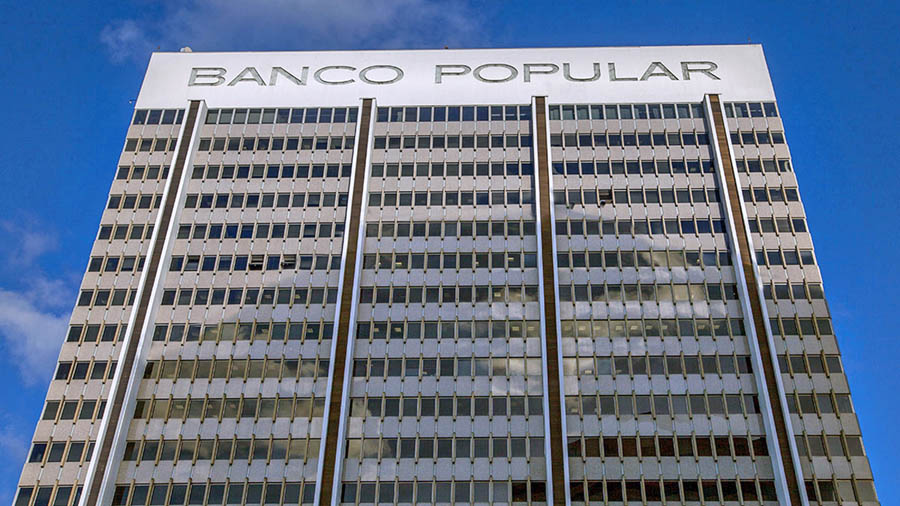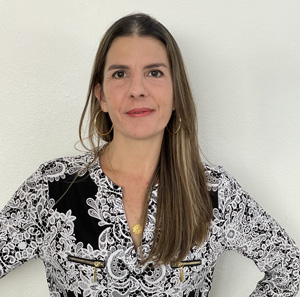Amid bank mergers, a global economic recession, sector going strong in Puerto Rico

After the consolidation of banks in Puerto Rico, which went from 10 Federal Deposit Insurance Corporation-insured banks to three, some major changes have taken place in the industry over the last 20 years.
News is my Business recently spoke with the island’s banks long-tenured CEOs — First Bancorp. CEO Aurelio Alemán, Oriental Bank CEO José Rafael Fernández and Popular Inc. CEO Ignacio Álvarez — delving into topics such as the future of the banking sector and how they foresee the industry will develop in the near future.

Oriental Bank
Oriental Bank CEO José Rafael Fernández told News is my Business that two major changes “have occurred in the banking industry over the last 20 years.”
“The first was the consolidation of the banking industry in Puerto Rico from 10 banks to three,” Fernández said. “Since 2010, Oriental has led those efforts. In 2010, Oriental purchased Eurobank from the FDIC. In December of 2013, Oriental acquired the Puerto Rico operations of BBVA [Banco Bilbao Vizcaya Argentaria]. Six years later, in December 2019, Oriental acquired Scotiabank’s Puerto Rico and U.S. Virgin Island operations.”
It should be noted that First BanCorp., FirstBank Puerto Rico’s parent company, completed the acquisition of Banco Santander Puerto Rico in 2020; and Popular Inc., the parent company of Banco Popular de Puerto Rico, bought Westernbank in 2010.
Fernández, who has worked at Oriental for 32 years and began his tenure as the bank’s CEO in December 2004, said that the second significant change is the recent economic turnaround on the island.
“Since 2022, when federal reconstruction funds began flowing into the island, Puerto Rico has experienced increased positive momentum in the economy,” he said.
As reported by News is my Business in November, American Banker Magazine recognized Fernández as Community Banker of the Year, acknowledging his leadership and contribution to Puerto Rico’s banking industry and his impact on the island’s communities, the financial institution announced.
Fernández said the banking sector is currently well-capitalized, with ample liquidity to support economic growth.
“At Oriental, we’re supporting local small and midsize businesses with the financial tools to help them grow,” he noted.
Regarding his expectations for the near future, Fernández said, “The banking sector will be an important contributor to economic growth. At Oriental, we will continue to deploy innovation to provide additional digital banking solutions to our customers so we can serve them in a more agile, fast and efficient way.”
Meanwhile, as virtual banks have begun to operate in Puerto Rico, Fernández noted, “We’re in an environment where all the banks currently provide digital solutions to their customers. As to the virtual banks in Puerto Rico, it’s really too early to tell how they will perform in the future.”

First BanCorp.
Meanwhile, First BanCorp. CEO Aurelio Alemán, who became the bank’s CEO in 2009, said that some of the most significant changes in the local banking sector during his tenure have been the industry’s ability to sustain its profitability levels while dealing with increased regulatory scrutiny, a reduced number of banks but increased competition from nonbanks, proliferation of different channels, and more digital adoption.
“Since 2009, the local banking sector has become one of the most capitalized and best performing markets in the U.S.,” Alemán told News is my Business.
He further noted that the Puerto Rico market is “probably in its best position since the global financial crisis in 2008.”
With regard to what he expects to see in the banking sector’s near future, Alemán said “Increased focus on digital service will continue to be key, but omnichannel sales and distribution will play an important role.”
As banks on the island started to consolidate, Alemán said the institutions reflect the economic sector.
“Although it is quite strong now, the landscape was impacted by years of economic recession, which led to industry consolidation,” Alemán noted. “That said, we continue to compete with multiple institutions in retail and commercial space even if they don’t have a physical presence on the island.”
“All banks in Puerto Rico, irrespective of how they market themselves, have ample digital and online capabilities to serve their clients,” he added. “Moreover, the FDIC granted a charter to one bank earlier this year, which is a testament to the depth and robust nature of the local economy.”
Popular Inc.
Popular Inc. CEO Ignacio Álvarez, meanwhile, said the most significant changes he has seen in the banking sector since he was appointed CEO in 2017, has been continued consolidation in the industry.
“Several foreign banks departed the island and weaker banks were absorbed by the remaining commercial banks,” Álvarez said. “Local banks are better capitalized than ever and able to meet the needs of the Puerto Rico economy. For example, local banks have more deposits than loans, and thus do not need to rely on external financing to fund loan growth and economic expansion in Puerto Rico.”

Álvarez further noted that, in the last five-plus years, the bank has “seen a change in consumer habits, preferences and expectations.”
“These trends, though accelerated by the pandemic, were underway long before that, driven by the dramatic pace of technological change,” Álvarez said. “What used to be an excellent customer experience is today’s minimum expectation. Our industry has been challenged to become more customer-centric and personalized to ensure every interaction is meaningful, whether it takes place digitally or at a branch. Finally, the shift toward digital has resulted in increased cyber-risk, making cyber security a top priority for the banking industry.”
Before his appointment as the bank’s CEO, Álvarez had served as president of Popular Inc. and chief operating officer from 2014 to 2017. He joined Popular Inc. as executive vice president and chief legal officer in 2010.
He said Puerto Rico’s banking industry is “better capitalized and more liquid than ever.”
The CEO said the three principal remaining commercial banks are based in Puerto Rico and therefore focused on meeting the needs of the island’s retail and commercial customers.
“At Popular, we have achieved significant loan growth across almost all business segments this year. At the same time, credit quality remains strong in comparison to historic levels,” Álvarez said.
He expects that soon the banking sector, like most industries, will continue to offer more services and products through digital channels with more self-service options. The integration of artificial intelligence should also allow the industry to provide a more personalized experience tailored to clients’ individual needs, Álvarez said.
“While we will continue to invest in our digital offering, maintaining a strong omnichannel strategy is a priority for Popular,” Álvarez assured. “It is rooted in our founding values of inclusion, improved financial access and equity. We serve a diverse customer base across all generations, and it is important that we connect with everyone as they prefer – digitally, face-to-face or somewhere in between.”
Several events in recent years have “proven the importance of our omnichannel strategy,” he said.
“While our extensive branch network proved to be critical in the aftermath of Hurricane Maria, when digital channels were affected by the collapse of the electric and telecommunications infrastructures, our robust digital capabilities allowed us to adjust quickly and continue serving our customers during the pandemic,” Álvarez added.
About the consolidation of banks in Puerto Rico, Álvarez noted that the island has faced several economic challenges since 2006, including the exit of Section 936, which led to the end of tax incentives for U.S. companies in Puerto Rico; the 2008 global financial crisis; and the restructuring of the commonwealth’s debt, “all of which inevitably impacted the local economy and banking industry.”
“Some banks were not prepared to face those challenges and were absorbed by stronger players, while several foreign banks decided to leave the island for strategic reasons,” Álvarez said, adding that, as a result, “we saw significant consolidation in the market.”
“Despite these consolidations, competition in our market is robust. Puerto Ricans have a wide range of financial services available from the local banks, as well as from credit unions, U.S. banks and fintechs. I believe that the market is currently rightsized. Local banks have ample liquidity to support loan demand and are better capitalized than ever,” he continued.
Furthermore, as virtual banks make their way into the island, Álvarez acknowledged that banking customers have options for where to bank according to their needs.
“At Popular, we continue to believe that most customers prefer the optionality of a multi-channel offering, which is an important competitive advantage for us,” he concluded. “This year we celebrated our 130th anniversary and reached the significant milestone of serving 2 million customers in Puerto Rico. We’re optimistic about the future and remain committed to promoting economic growth and general progress on the island.”




